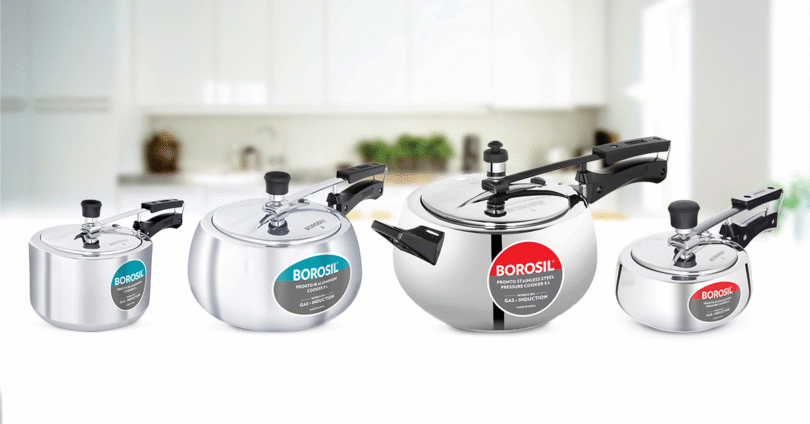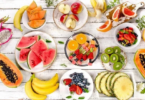So, you have made the switch, or at least you’re giving it a go. Chickpeas, rajma, brown rice, moong dal; your kitchen is stocked, your Pinterest board is full of recipes, and your motivation is high. But then, life happens. It is 7:30 PM. You are hungry, tired, and staring at dry beans like, “Wait, these need to soak?” And even if you did soak them, do you have to simmer them for ages now? Honestly, who has that kind of time on a weeknight? That is exactly where a pressure cooker steps in.
Quietly, reliably, no drama. It is like that one friend who does not say much but shows up and gets the job done. If plant-based cooking feels too slow or overwhelming, this little appliance changes everything.
Let us talk about why it matters and how it can make this whole beans-and-grains lifestyle feel way less effort and way more doable.
Why Pressure Cookers Are A Must For Plant-Based Meals
Plant-based eating is brilliant for so many reasons, but wow, it can be time-consuming. Whole foods like lentils, beans, brown rice, and sweet potatoes are great for your body… just not great for your schedule.
This is where the best pressure cooker quietly saves the day. It chops down long cook times, keeps nutrients in, and helps you skip the endless stirring and checking. Whether you’re batch-cooking for the week or making a quick one-pot dinner, a reliable pressure cooker makes plant-based eating feel a lot more doable.
It makes it easier to:
- Cook from scratch (without feeling like a full-time chef)
- Ditch the processed stuff
- Get more flavour out of your ingredients
- Cut back on gas or electricity
- Prep meals ahead with less effort
How to Use a Pressure Cooker to Consume More Plant-Based Diets?
Alright, let us get into the really good bits. These are four ways a pressure cooker makes plant-based living feel less “ugh” and more “oooh!”
- Cooks Beans And Legumes To Perfection
If there is one ingredient that throws people off, it is beans. They are fantastic, cheap, filling, full of protein, but good grief, they take forever on the stove. And canned beans? Handy, yes. But often full of salt and stuff you might not want every day.
Enter the pressure cooker.
Suddenly, dried chickpeas are not a half-day project. Even unsoaked ones can be ready in under 40 minutes. Soaked ones? You are looking at 15–20 minutes, tops. Lentils, black beans, rajma, all soft, perfectly cooked, and still holding their shape. No mush, no mess.
And once you get the hang of it, you will never panic at 6 PM thinking, “Guess I can’t make rajma tonight.” Because you totally can.
- Makes Whole Grains Easier To Include
Whole grains are brilliant for energy and fibre, but they often get left behind because they’re fussy to cook. Brown rice takes 45 minutes. Barley and millets are inconsistent on a gas stove. You tell yourself you’ll make them… then reach for white rice again.
With the best pressure cooker, you can cook almost any grain quickly and evenly. No burnt bottoms. No sticky mess. Whether it’s quinoa, amaranth, or steel-cut oats, you get fluffy, cooked-through results every time.
This means you’re more likely to actually eat the good stuff you buy, and that’s a huge win for sticking to your plant-based routine.
- Supports Batch Cooking And Weekly Meal Prep
If you’ve ever wanted to prep meals for the week and ended up making just one dish out of exhaustion, you’re not alone.
Plant-based meal prep often involves cooking big batches of lentils, grains, and beans. A pressure cooker handles these beautifully and quickly. You can cook one batch of rajma while prepping your vegetables, then move straight to cooking quinoa or dal without scrubbing multiple pans.
Make-ahead staples like chana, mixed dals, and even soups become way less effort. Store them in containers, and your fridge turns into a plant-based goldmine for the week ahead.
- Helps Retain Nutrients Without Compromise
A common worry is that pressure cookers “kill nutrients.” But here’s the thing: when used correctly, they actually preserve more nutrients than boiling or open-lid cooking. Since the food cooks faster and with less water loss, vitamins and minerals stay locked in.
This is a big deal if you’re eating plant-based for better health. The last thing you want is to spend time cooking sweet potatoes, spinach, or lentils only to lose half their goodness in the process.
Plus, the shorter cook times mean less heat damage to delicate ingredients—and less kitchen heat in general.
Conclusion
If your meals revolve around lentils, beans, grains, or root vegetables, a pressure cooker is more than just helpful; it’s essential. It makes cooking from scratch doable on a daily basis, without draining your time or energy. It supports your health goals, helps you stick to your plant-based plans, and takes the guesswork out of batch cooking. If you’ve been struggling to keep up with plant-based eating, this might be the tool that makes it finally feel… easy.






